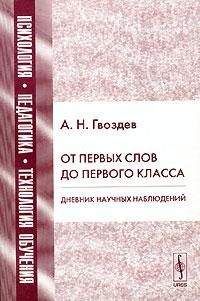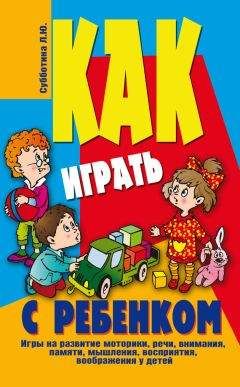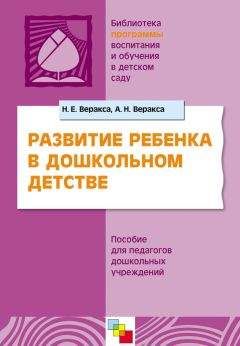Роберт Говард - Английский язык с Р. Э. Говардом
rogue [rəuɡ], hybrid [ˈhaɪbrɪd], conquest [ˈkɔŋkwest]
Thutmekri was a Stygian, an adventurer and a rogue whose wits had recommended him to the twin kings of the great hybrid trading kingdom which lay many days' march to the east. He and the Cimmerian knew each other of old, and without love. Thutmekri likewise had a proposition to make to the king of Keshan, and it also concerned the conquest of Punt — which kingdom, incidentally, lying east of Keshan, had recently expelled the Zembabwan traders and burned their fortresses.
His offer outweighed even the prestige of Conan (его предложение перевесило даже престиж Конана; to outweigh — быть тяжелее, превосходить в весе; перевешивать, быть более влиятельным, важным). He pledged himself to invade Punt from the east with a host of black spearmen (он взял на себя обязательство вторгнуться в Пунт с востока с войском черных копейщиков; to pledge oneself — брать на себя обязательство), Shemitish archers, and mercenary swordsmen (шемитских лучников и наемных мечников), and to aid the king of Keshan to annex the hostile kingdom (и помочь царю Кешана присоединить враждебное королевство; to annex — аннексировать; присоединять, включать в состав). The benevolent kings of Zembabwei desired only a monopoly of the trade of Keshan and her tributaries (великодушные короли Зембабвей желали лишь монополию на торговлю в Кешане и в государствах, платящих ему дань; benevolent — благожелательный, благосклонный; благотворительный, филантропический; великодушный;tributary — государство, платящее дань) — and, as a pledge of good faith, some of the Teeth of Gwahlur (и, как залог честных намерений, несколько из Зубов Гвалура; pledge — залог, заклад; знак, символ;faith — вера, доверие; good faith — добросовестность, честность, честные намерения). These would be put to no base usage (они не будут применяться низменным образом; to put to usage — применять, использовать; base — низкий; низменный, подлый, грязный), Thutmekri hastened to explain to the suspicious chieftains (поспешил пояснить Тутмекри подозрительным вождям); they would be placed in the temple of Zembabwei beside the squat gold idols of Dagon and Derketo (они будут размещены в храме Зембабвей рядом с приземистыми золотыми идолами Дагона и Деркето; to place — помещать, размещать /в пространстве/; squat — сидящий на корточках /о людях/; короткий и толстый; низкий и широкий), sacred guests in the holy shrine of the kingdom (священными гостями в святом храме королевства; shrine — рака; храм), to seal the covenant between Keshan and Zembabwei (чтобы скрепить договор между Кешаном и Зембабвей; to seal — скреплять печатью; скреплять /сделку и т. п./; торжественно узаконивать). This statement brought a savage grin to Conan's hard lips (это заявление принесло = вызвало злую усмешку на суровых губах Конана; to bring — приносить; savage — дикий; злой, свирепый;hard — жесткий; упрямый; суровый).
outweigh [autˈweɪ], prestige [presˈti:ʒ], hostile [ˈhɔstaɪl]
His offer outweighed even the prestige of Conan. He pledged himself to invade Punt from the east with a host of black spearmen, Shemitish archers, and mercenary swordsmen, and to aid the king of Keshan to annex the hostile kingdom. The benevolent kings of Zembabwei desired only a monopoly of the trade of Keshan and her tributaries — and, as a pledge of good faith, some of the Teeth of Gwahlur. These would be put to no base usage, Thutmekri hastened to explain to the suspicious chieftains; they would be placed in the temple of Zembabwei beside the squat gold idols of Dagon and Derketo, sacred guests in the holy shrine of the kingdom, to seal the covenant between Keshan and Zembabwei. This statement brought a savage grin to Conan's hard lips.
The Cimmerian made no attempt to match wits and intrigue with Thutmekri and his Shemitish partner, Zargheba (киммериец не пытался померяться умом и плетением интриг с Тутмекри и его шемитским компаньоном, Зархебой; to make an attempt — сделать попытку; to match — меряться /силами и т. п./; intrigue — интрига, козни, тайные происки; плетение интриг). He knew that if Thutmekri won his point (он знал, что если Тутмекри добьется своей цели; to win — побеждать, выигрывать; добиваться; point — точка, пункт; цель, намерение), he would insist on the instant banishment of his rival (он будет настаивать на немедленной высылке соперника /из страны/). There was but one thing for Conan to do (Конану оставалось сделать лишь одно: «была лишь одна вещь для Конана, чтобы сделать»): find the jewels before the king of Keshan made up his mind (найти сокровища до того, как царь Кешана примет решение; to make up one’s mind — принять решение, решиться /на что-л. или сделать что-л./), and flee with them (и сбежать с ними). But by this time he was certain that they were not hidden in Keshia, the royal city (но к этому времени он был уверен, что они спрятаны не в Кеше, королевском городе; to hide — прятать), which was a swarm of thatched huts crowding about a mud wall (который был кучей крытых соломой хижин, теснящихся вокруг глиняной стены; thatched — крытый соломой;thatch — солома, тростник /как материал для кровли крыши/; mud — грязь; глиняная масса) that enclosed a palace of stone and mud and bamboo (которая окружала дворец из камня, глины и бамбука).
intrigue [ɪnˈtri:ɡ], jewel [ˈʤu:əl], swarm [swɔ:m]
The Cimmerian made no attempt to match wits and intrigue with Thutmekri and his Shemitish partner, Zargheba. He knew that if Thutmekri won his point, he would insist on the instant banishment of his rival. There was but one thing for Conan to do: find the jewels before the king of Keshan made up his mind, and flee with them. But by this time he was certain that they were not hidden in Keshia, the royal city, which was a swarm of thatched huts crowding about a mud wall that enclosed a palace of stone and mud and bamboo.
While he fumed with nervous impatience (пока он кипел от злости от действующего на нервы нетерпения; to fume — раздражаться из-за /чего-л./; кипеть от злости по поводу /чего-л./; nervous — нервный; нервирующий, действующий на нервы), the high priest Gorulga announced that before any decision could be reached (верховный жрец Горулга возвестил, что прежде чем /можно будет/ принять какое-либо решение; to announce — объявлять; сообщать, извещать; заявлять;to reach a decision — принять решение; to reach — протянуть /напр., руку/; достигнуть), the will of the gods must be ascertained concerning the proposed alliance with Zembabwei and the pledge of objects long held holy and inviolate (нужно выяснить волю богов в отношении предлагаемого союза с Зембабвей и залога предметов, долгое время хранимых в святости и неоскверненности: «святыми и неоскверненными»; to hold — держать; хранить; inviolate — ненарушенный; неоскверненный). The oracle of Alkmeenon must be consulted (нужно посоветоваться с оракулом Алкминона).
impatience [ɪmˈpeɪʃəns], decision [dɪˈsɪʒn], alliance [əˈlaɪəns]
While he fumed with nervous impatience, the high priest Gorulga announced that before any decision could be reached, the will of the gods must be ascertained concerning the proposed alliance with Zembabwei and the pledge of objects long held holy and inviolate. The oracle of Alkmeenon must be consulted.
This was an awesome thing (это было грандиозное/необычайное дело; awesome — внушающий страх; потрясающий, фантастический; грандиозный; awe — /благоговейный/ страх, трепет, благоговение), and it caused tongues to wag excitedly in palace and beehive hut (и это послужило поводом для оживленных сплетен во дворце и в хижинах-ульях; to cause — послужить причиной/поводом для чего-л.; to wag one’s tongue — болтать, сплетничать: «махать своим языком»; excitedly — взволнованно; оживленно; to excite — возбуждать). Not for a century had the priests visited the silent city (уже столетие жрецы не посещали безмолвный город). The oracle, men said, was the Princess Yelaya (оракулом, говорили люди, была принцесса Елая), the last ruler of Alkmeenon (последняя правительница Алкминона), who had died in the full bloom of her youth and beauty (которая умерла в полном расцвете молодости и красоты), and whose body had miraculously remained unblemished throughout the ages (и тело которой чудесным образом оставалось неповрежденным = безупречным на протяжении веков; miraculously — чудесным образом, чудотворно; throughout — на всем протяжении /о времени/; ages — возраст; век, период, эпоха; долгий срок; to blemish — повреждать, портить; вызывать физический дефект). Of old, priests had made their way into the haunted city (прежде жрецы пробирались в зачарованный город; to make one’s way — пробираться; to haunt — часто посещать; посещать какое-л. место /о духах/), and she had taught them wisdom (и она учила их мудрости; to teach — обучать, преподавать). The last priest to seek the oracle had been a wicked man (последним жрецом, который обратился /за помощью/ к оракулу, был безнравственный человек; to seek — искать; обращаться /за помощью/, просить; wicked — злой, злобный; безнравственный; грешный), who had sought to steal for himself the curiously cut jewels that men called the Teeth of Gwahlur (который попытался украсть для себя причудливо ограненные драгоценные камни, которые люди называли Зубами Гвалура; to seek — искать; пытаться, пробовать; to cut — резать; гранить). But some doom had come upon him in the deserted palace (однако какое-то несчастье напало на него в безлюдном дворце; doom — рок, судьба; смерть;to come on — нападать, атаковать; налетать, обрушиваться /на кого-л., что-л./), from which his acolytes, fleeing, had told tales of horror (убежав от которого, его помощники рассказывали ужасные истории; to flee — убегать;to tell — говорить; рассказывать) that had for a hundred years frightened the priests from the city and the oracle (которые на сто лет отпугнули жрецов от города и оракула; to frighten — пугать; отпугивать).
awesome [ˈɔ:səm], tongue [tʌŋ], youth [ju:Ɵ], frighten [fraɪtn]
This was an awesome thing, and it caused tongues to wag excitedly in palace and beehive hut. Not for a century had the priests visited the silent city. The oracle, men said, was the Princess Yelaya, the last ruler of Alkmeenon, who had died in the full bloom of her youth and beauty, and whose body had miraculously remained unblemished throughout the ages. Of old, priests had made their way into the haunted city, and she had taught them wisdom. The last priest to seek the oracle had been a wicked man, who had sought to steal for himself the curiously cut jewels that men called the Teeth of Gwahlur. But some doom had come upon him in the deserted palace, from which his acolytes, fleeing, had told tales of horror that had for a hundred years frightened the priests from the city and the oracle.
But Gorulga, the present high priest (но Горулга, нынешний верховный жрец), as one confident in his knowledge of his own integrity (как человек, уверенный в своем сознании собственной чистоты; one — один; в значении «человек»; integrity — прямота, честность, чистота), announced that he would go with a handful of followers to revive the ancient custom (объявил, что пойдет с горсткой последователей, чтобы возродить древнюю традицию; to revive — оживать; возрождать). And in the excitement tongues buzzed indiscreetly (и в возбуждении несдержанно судачили языки; to buzz — гудеть, жужжать; сплетничать, шептаться; indiscreetly — неблагоразумно; неосторожно; нескромно, несдержанно), and Conan caught the clue for which he had sought for weeks (и Конан нашел путеводную нить, которую он искал уже недели; to catch — ловить, поймать; обнаружить; clue — клубок; путеводная нить) — the overheard whisper of a lesser priest that sent the Cimmerian stealing out of Keshia the night before the dawn when the priests were to start (подслушанный шепот младшего жреца, который направил = заставил киммерийца выскользнуть из Кеши в ночь перед рассветом, когда должны были отправляться жрецы; to send — направлять; приводить в какое-л. состояние; to steal out — выскользнуть).




